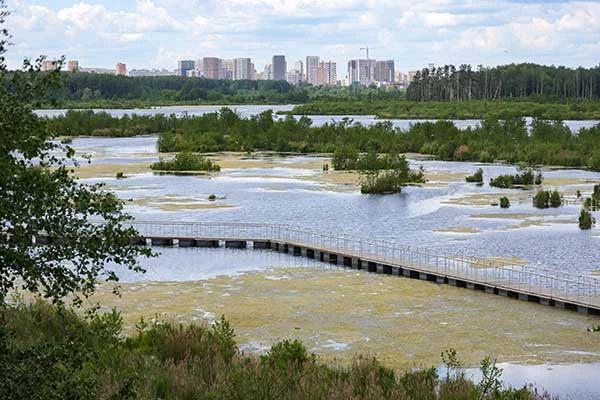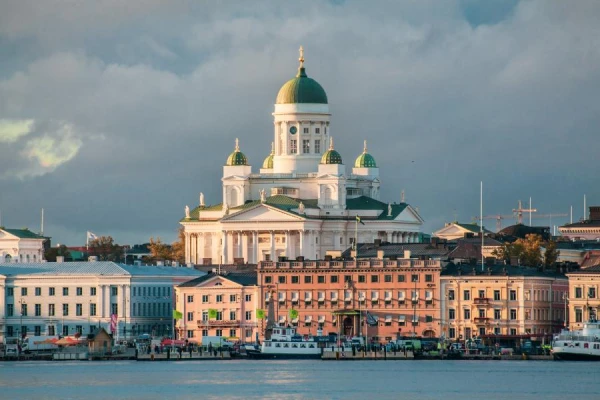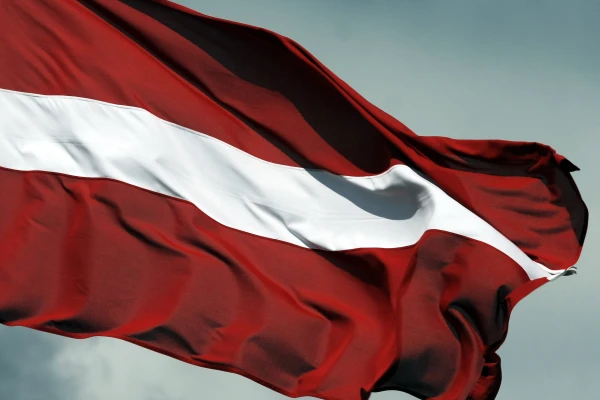
Mayor Sobyanin intends to develop the last green zones.
A significant event went unnoticed: the authorities of the Russian capital rejected the call to preserve a nature reserve of national and European significance for future generations.
The State Duma rejected a bill aimed at preventing the construction in the national park ‘Losiny Ostrov’ in Moscow. It was proposed to return the powers for protecting the territory to the federal level (which were strangely transferred to Moscow at the end of 2023). The bill to protect this natural gem was introduced by deputies from the Communist Party of the Russian Federation (CPRF) elected in Moscow at the beginning of last year.
The explanatory note to the document states that the national park ‘Losiny Ostrov’ is the largest nature reserve located within a city in Europe, which is why it is referred to as the “lungs of the capital.” Two years ago, the powers for protecting the territory were transferred to Moscow, for which amendments to the law “On the Status of the Capital of the Russian Federation” and the law “On Specially Protected Natural Areas” were approved. They were adopted in a rather strange manner, essentially by substituting one bill for another.
The changes effectively allowed for the construction of roads, transport and engineering infrastructure, and communication lines within the territory of ‘Losiny Ostrov.’ And now construction is already in full swing, destroying ‘Losiny Ostrov’ as a protected area, a national park, and a home for flora and fauna, including endangered species. It should be noted that the reserve can remain so until the so-called limited economic use begins; there is no middle ground here.
Two years ago, when ‘Losiny Ostrov’ was transferred to Moscow, Mayor Sergei Sobyanin promised not to develop ‘Losiny Ostrov.’ However, since then, the Northeast Chord has passed through the territory of the reserve. “After the completion of the chord construction, the ecosystem of this part of the park has deteriorated, and the promised restoration measures, such as the construction of eco-ducts across the chord and the Moscow Central Circle, are now deemed impractical due to the loss of ecological value of this severed part of the park,” the explanatory note to the bill stated.
Residential construction has also begun in the national park. The residential complex ‘Skazochniy Les’ (Fairy Forest) is notorious not only for initiating illegal development of the protected natural area but also for the deceived investors. Now, a road is also planned to be laid to this monument of mismanagement. Through the forest, of course.
The authors of the bill concluded that by transferring control of ‘Losiny Ostrov’ to the city authorities, the legislators made a mistake. The two-year application of it has already led to the degradation of a significant part of the reserve. To prevent such situations in the future, the developers proposed to annul the previously adopted amendments to the legislation regarding the transfer of responsibilities for protection to Moscow and recognize them as having lost their force. “This will allow preserving the unique nature of the national park ‘Losiny Ostrov’ not only for the current but also for future generations of Muscovites,” the explanatory note stated.
The Moscow city hall has long taken a course toward the development of the remaining green zones. Under the slogan “The city must develop,” specially protected natural areas have been transformed by a mere wave of an authoritative hand into so-called green zones with an unclear status. But very soon, nothing will remain of them either. After all, the wealthy want to live in ecologically clean places, and for that, these places need to be developed. And developers are dreaming of construction where it was previously impossible.
The development of the territories of the parks ‘Severное Tushino’ and ‘Krylatskie Holmy,’ their commercialization; the threat of destruction of the ‘Trudovye Rezervy’ park in Southern Tushino for the development of the coastal area of the Khimki Reservoir; the construction of commercial pavilions in the territory of the ‘Sokolniki’ park; the destruction of the green area of the ‘Dolina reki Korshunikhy’ park for road construction; mass deforestation near the ‘Pokrovskoe-Streshnevo’ park for the construction of a paid highway; the conduct of “improvement” without agreements in the natural area and cultural heritage site ‘Ivanovskiye Prudy’; illegal improvement works at Golyanovskoye Pond and park, creating a “recreation area” in the nature protection area of the OOPT ‘Dolina reki Ochakovki’; violations of environmental legislation in Bitsevsky Forest: conducting construction works on its territory. And this is far from a complete list.
The authorities have already destroyed the first-category protected forests, the forest protective belt that had been created around Moscow for decades. Now this source of oxygen and coolness is completely built up. This year, it seems, the insatiable desire to destroy what was created by previous generations does not rest.
As a result, 84 deputies voted for the bill to protect ‘Losiny Ostrov’ — from the CPRF, ‘Fair Russia — For Truth,’ and ‘New People’ factions. 364 people did not vote — the factions of ‘United Russia’ and the LDPR blocked the adoption of the bill. It is noteworthy that the co-reporter from ‘United Russia’ during the consideration of the bill was Zarif Baiguskarov, a native of Bashkortostan and former chief bailiff of that republic, who has lived in Moscow since 2016.
Recent facts also speak to the authorities' policies regarding ecology and citizens protecting the environment. The action of the defenders of the national park ‘Losiny Ostrov’ on November 9 ended with the detention of activists. The police twisted and tied even women. And the residents of nearby cities such as Korolev, Mytishchi, and others merely came to find out on what grounds workers were preparing the site for road construction through ‘Losiny Ostrov.’ Activists emphasized that they are not protesting and are not engaging in anything illegal, but are merely protecting nature. Among those detained was also former Latvian activist Benes Ayo, a newly minted citizen of Russia, now a public inspector of Rosprirodnadzor.
Meanwhile
Another construction has begun almost by the Setun River, on Minskaya Street. The road has gone through the nesting areas of ducks in what was once a protected natural area. As is often the case, the destruction of the natural landscape is covered by good intentions — the construction of a sports complex. Meanwhile, there is already such a complex with a football field and running tracks nearby. A few years ago, when another elite residential complex was being built, a federal-scale scandal erupted. Now, the media do not even report on this. Meanwhile, the banks of the Setun in this area are already built up or being built up.












Leave a comment